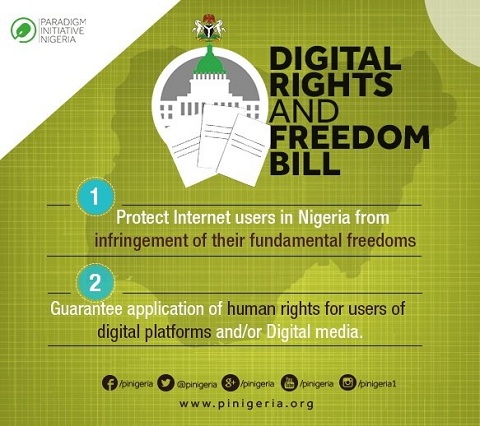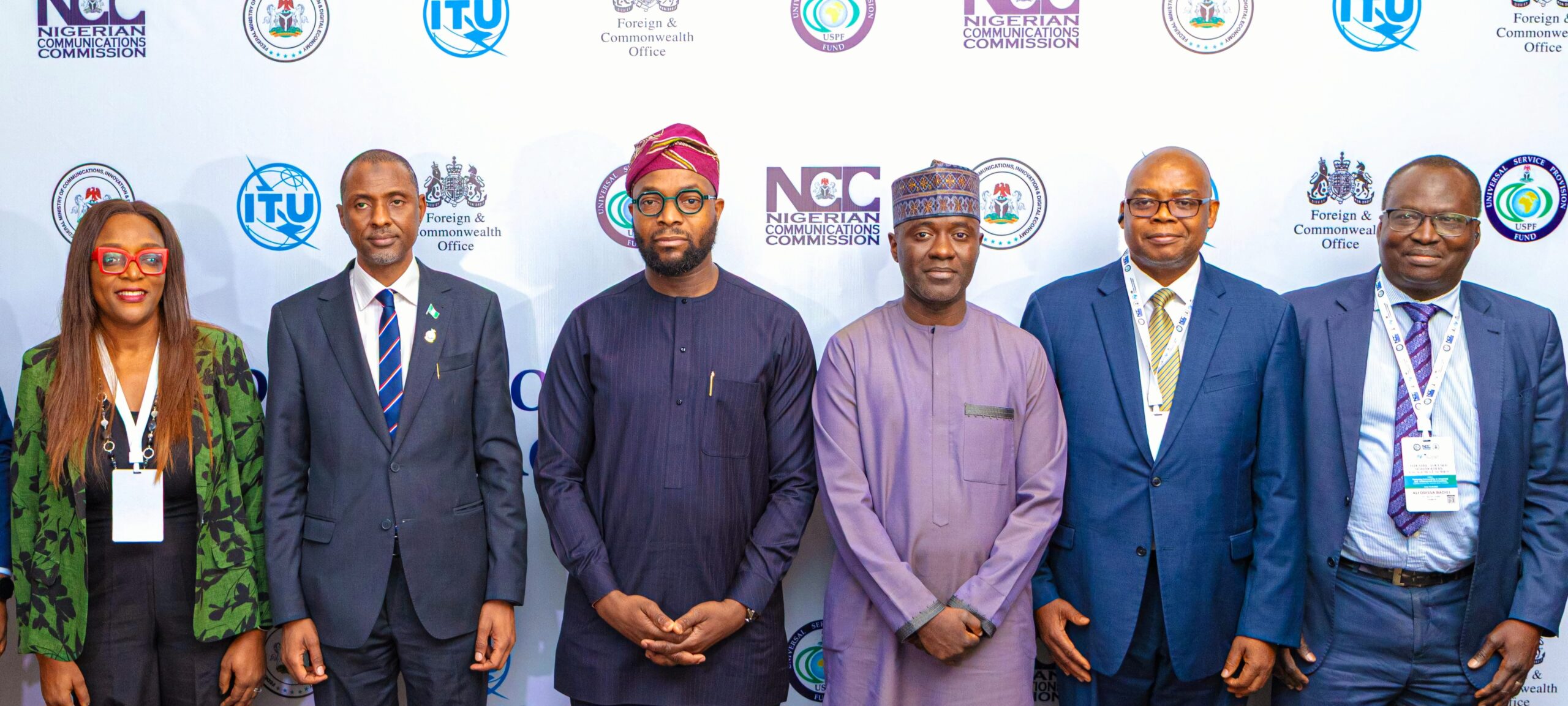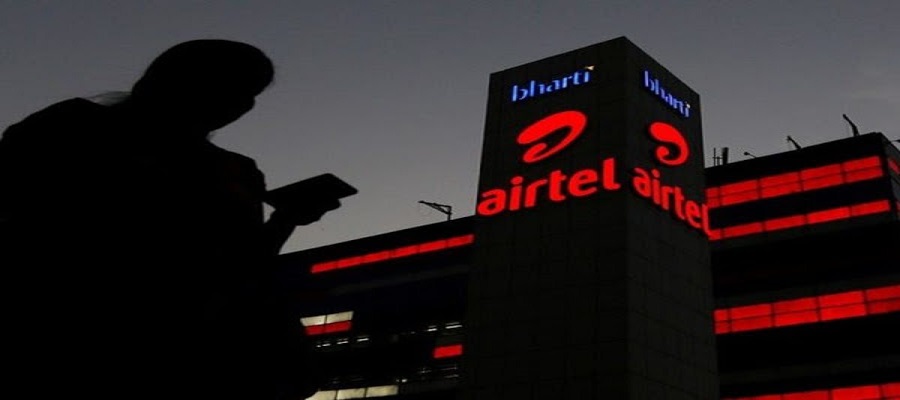Telecom
Nigerians Demand for Immediate Transmission of Digital Rights Bill

Nigerians on social media have expressed concern at the delay surrounding the transmission of the Digital Rights and Freedom Bill by the national assembly to President Muhammadu Buhari for the presidential assent.
The much anticipated Bill was passed in March by the Senate, following passage by the House of Representatives in November 2017.
Since then, the national assembly has not transmitted the Bill to the Presidency.
In a campaign led by Paradigm Initiative, hundreds of posts were made on twitter and other social media platforms, calling on the national assembly leadership to immediately transmit the Bill to the president.
Using the hashtags, #DigitalRightsBill and #HB490, social media campaigners ensured the Bill received adequate attention throughout last week.
According to a statement by Paradigm Initiative, “We are worried that since the passage in March, the National Assembly is yet to transmit the Bill to the President for assent.
“Many Bills passed after DRFB have been transmitted to the president for his assent.

“This is why we have called on Nigerians to join us in a campaign dedicated to encouraging the national assembly to send this Bill to President Muhammadu Buhari for his signature.”
According to ‘Gbenga Sesan, Paradigm Initiative’s Executive Director, “As we have said times without number before, The Digital Rights Bill is an important piece of legislation, not only for human rights in Nigeria but also for the economy of Nigeria.
“The Bill provides for the protection of human rights online, protect internet users from infringement of their fundamental freedoms and guarantee the application of human rights for digital platform users.
“The Bill strengthens users’ trust & has been lauded as a step in the right direction because of the value it brings to the digital economy and the rights of the people of Nigeria.
“The bill seeks to guarantee human rights within the context of emerging innovative technologies, security concerns, increasing citizen participation in governance and democratic processes.”
The Bill empowers law enforcement agencies in Nigeria to leverage technology to carry out their work with best practices obtainable anywhere in the world,
It also empowers young Nigerians who want to learn, innovate and do other forms of legitimate activities online by safeguarding their rights to do so.
The Bill when it becomes law will boost technological innovations in Nigeria and reverse the adversarial tendencies often displayed towards young people who embrace technology by security agencies as demonstrated by recent outrage against SARS in Nigeria.
Telecom
Transforming Lives Through Advocacy: Princess Omoyemwen Inspires Change at MTN’s Go MAD Activation in Benin

MTN Nigeria brought its Go M.A.D (Go Make A Difference) campaign to Benin City at 360 Lounge in GRA on Saturday, March 15, with a fusion of inspiration, culture, and digital experiences.

The Go M.A.D campaign, which has journeyed through cities like Abuja, Enugu, Calabar, and Ibadan, is designed to celebrate and support Nigerians who are creating positive change in their communities. In Benin, the campaign stayed true to its mission, one of the most moving highlights at this event was the Icons of Impact session, where local changemakers shared their personal stories of transformation and service.
For local changemaker Princess Omoyemwen Adeyinka Afolabi, a sports enthusiast, life coach, and culture advocate, the MTN Go MAD (Go Make A Difference) message resonated with her journey. She’s proving that one smile, one act of kindness, and one person’s commitment to change can spark a ripple effect across an entire community. “Since 2006, I’ve been going into public schools, meeting students who can’t afford to dream big, let alone pay school fees. Sports gave me a future, and I knew I had to pass that on.”
From helping school children stay in school through mentorship and scholarships, to launching the A Child, A Skill Initiative, to founding the Edo Heritage Sports Festival and Carnival, her work blends education, sports, and cultural identity in a way that’s both inspiring and deeply impactful. Through the MTN Go MAD platform, her story shines a light on what it means to truly “make a difference” especially in tough times.
At the heart of her work is a simple philosophy: putting a smile on one child’s face can set off a ripple effect of hope, strength, and change, and MTN has remained a consistent supporter of her journey. Princess’s journey, amplified by MTN’s Go MAD campaign, is a reminder that the most powerful changemakers don’t always start with grand gestures, they start with heart.
MTN’s Go MAD campaign has already been activated in Abuja, Enugu, Calabar and Ibadan. Benin was another step in MTN’s mission to support and empower everyday changemakers.
Telecom
Bridging Nigeria’s Digital Divide: ITU and UK-FCDO Fuel Rural Connectivity Revolution

Mr. Yomi Arowosafe, Secretary of the Universal Service Provision Fund (USPF) of the Nigerian Communications Commission (NCC), has commended the International Telecommunication Union (ITU) and the United Kingdom Foreign, Commonwealth & Development Office (UK FCDO), for their collaboration with Nigerian government to deepen rural connectivity for socio-economic development of the country.

L-R: Nigeria National Consultant, International Telecommunication Union (ITU), Ogundipe Olubunmi; Permanent Secretary, Federal Ministry of Communications, Innovation and Digital Economy (FMoCIDE), Faruk Yabo; Hon. Minister, FMoCIDE, Dr. Bosun Tijani; Executive Vice Chairman/Chief Executive Officer, Nigerian Communications Commission, Dr. Aminu Maida; Secretary, Universal Service Provision Fund, Yomi Arowosafe and West Africa Area Representative, ITU, Ali Badiel, during the Industry-focused Stakeholders Engagement Session organised by the USPF of the Commission in collaboration with ITU and United Kingdom Foreign, Commonwealth & Development Office (UK FCDO), in Lagos on Thursday (March 13, 2025).
Arowosafe gave the commendation at an Industry-Focused Stakeholders Engagement Session which was organised in Lagos over the weekend by the USPF in in collaboration with the UK FCDO and the ITU. The session built on USPF’s ongoing efforts to facilitate the achievement of wide network connectivity coverage in unserved and underserved communities across Nigeria.
The event was attended by the Hon. Minister of Communications, Innovation and Digital Economy, Dr. Bosun Tijani; the Permanent Secretary of the Ministry of Communications, Innovations and Digital Economy, Faruk Yabo; the Executive Vice Chairman of Nigerian Communications Commission, Dr. Aminu Maida; Chief Executives of telecommunications companies, State ICT commissioners, notable industry players, trade associations, development partners, key speakers, distinguished guests and staff of both NCC and the USPF.
The Minister spoke on the commitment of President Bola Tinubu to provide enabling policy directions and initiatives towards ensuring greater connectivity in Nigeria to transform the socio-economic development of Nigeria while the NCC boss, Maida emphasized the Commission’s resolve to continue to back all USPF projects through effective regulatory measures that help in accelerating deployment of necessary digital infrastructure that support the achievement of the Federal Governments’ priority areas and ministerial blueprint.
Speaking at the event, the Arowosafe said the engagement reflected the USPF’s shared vision and commitment to expanding inclusive connectivity and that the presence of all other stakeholders at the event underscored the vital role of collaboration in achieving the goal.
He said the theme of this workshop, “Fostering Connectivity in Unserved and Underserved Communities: Collaborating for Sustainable Growth”, highlighted government’s dedication to bridging the digital divide, in alignment with NCC’s Strategic Focus Areas, the Ministry’s Strategic Blueprint, and Presidential Priority Areas.
“Together, we have the power to create sustainable and inclusive pathways to ensure no community is left behind. Achieving this requires strong partnerships among government, private sector, non-governmental organisations (NGOs), development partners, and community leaders. By sharing insights and resources, we can design tailored solutions that address both immediate and long-term connectivity challenges,” he said.
The USP Secretary stated that ahead of the session, the USPF gathered input from stakeholders through questionnaires. He said the responses obtained shaped the panel discussions, focused on key strategies to foster connectivity through collaboration and partnerships, strengthen capacity building and security, and explore innovative funding mechanisms for sustainable connectivity.
He said the engagement, thus, offered a platform for robust dialogue and practical solutions that address our unique challenges and help improve telecommunications access in underserved regions, while encouraging participants to actively participate, share their expertise, and contribute to shaping outcomes that will strengthen the nation’s digital ecosystem and improve the lives of all Nigerians.
“This event marks the beginning of a collective journey toward a more connected, inclusive, and prosperous Nigeria. USPF is proud to lead this effort, and we look forward to what we can accomplish together,” he said.
Telecom
Airtel Launches AI Spam Alert in Nigeria

Airtel, one of Africa’s leading telecommunications providers, has launched a groundbreaking Artificial Intelligence (AI)-driven Spam Alert Service in Nigeria, aimed at tackling the growing issues of spam messages and fraud.

Speaking at the launch event held in Lagos, Dinesh Balsingh, Managing Director of Airtel Nigeria, revealed that the innovative service will be rolled out across Airtel’s 14-country footprint.
Notably, Airtel subscribers in Nigeria can access the service at no additional cost.
The AI-powered solution detects and alerts users in real-time about suspected spam SMS, safeguarding them from potential fraud and cyber threats.
Highlighting the company’s commitment to technology-driven customer solutions, Balsingh said, “this is a game changer for the telecoms industry in Africa and as we move forward, we will continue to address customer challenges through proactive tech-driven solutions.”
The service is built on a proprietary dual-layer protection system that analyses over 250 parameters, including sender behavior, SMS frequency, and target location patterns.
Capable of filtering over 1.5 billion messages within two milliseconds, it also features a centralised database of blacklisted URLs to warn users about suspicious links.
“With the launch of this AI-powered Spam Alert Service, Airtel Africa has reaffirmed its commitment to delivering innovative solutions that enhance customer experience, safety, and digital inclusion across the continent.
“As Airtel continues to expand its footprint, it is expected that this pioneering solution will set a new standard for the telecoms industry in Africa.
“Also, as the digital landscape continues to evolve, Airtel Africa remains at the forefront, pushing boundaries and shaping the future of telecommunications in Africa,” said Balsingh.
He emphasised that as Airtel continues to expand, the pioneering solution will set new benchmarks for Africa’s telecom industry.
The initiative has received commendation from key stakeholders, including Dr. Bosun Tijani, minister of Communications, Innovation, and Digital Economy.
Dr. Tijani lauded Airtel’s efforts in boosting Nigeria’s technology ecosystem, particularly through solutions that enhance online security and foster digital inclusion.
Similarly, Dr. Aminu Maida, executive vice chairman of the Nigerian Communications Commission, hailed the service as a major step in addressing the security challenges faced by telecom subscribers.
As the digital landscape evolves, Airtel Africa continues to push the boundaries of innovation, shaping the future of telecommunications across the continent.

 Telecom3 days ago
Telecom3 days agoAirtel Launches AI Spam Alert in Nigeria

 E-Business3 days ago
E-Business3 days agoMyLagos App Unavailable despite Launch with Fanfare

 E-Financial3 days ago
E-Financial3 days agoAllegations of Fraud against us Unfounded, False — First Bank

 Telecom3 days ago
Telecom3 days agoNCC, ALTON, LASIMRA Engage to Strengthen Telecom Infrastructure in Lagos

 E-Financial3 days ago
E-Financial3 days agoNigeria’s Cash Payments to Decline 32% by 2030 on Digital Transaction Surge

 News3 days ago
News3 days agoFG Seeks Stakeholders’ Collaboration to Bridge Digital Gap

 News3 days ago
News3 days agoAMCON Vows to Recover N455bn Debt from Arik Air, Affiliates

 Broadcasting3 days ago
Broadcasting3 days agoMTN Board: Between sentiment and the law

























